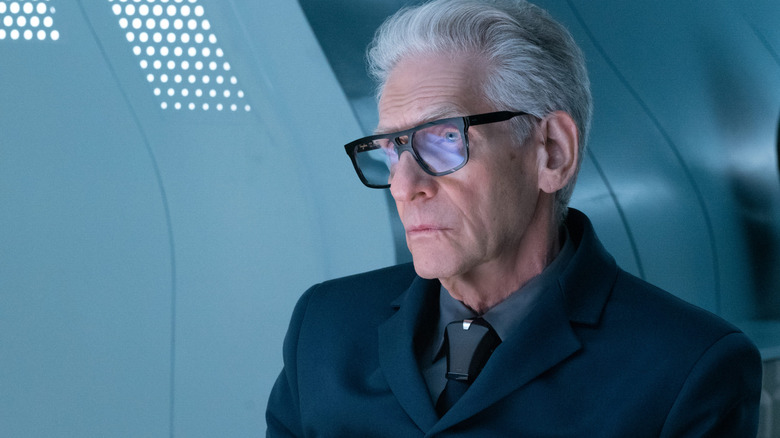
David Cronenberg's newest film, "Crimes of the Future," is due to debut at the Cannes Film Festival on May 23 of this year, with a North American release set for on June 3, 2022. To be clear, it is not a remake of his 1970 film with the same title. "Crime of the Future," in-keeping with the Canadian director's reputation, has been described as a body horror film (a term the filmmaker often eschews). Set in the future, "Crimes" is about how physical pain and public surgery have come to replace sexuality. Cronenberg's films have often centered on the appetites of the body and their close link to the degradation of the mind. His films tend to focus on conspiracies, paranoia, fetishes, and sex scenes that might be described as brutalist.
Now 79, Cronenberg has a sizeable filmography as a director. that includes low-budget horror movies, a lot of intense sci-fi, a Stephen King adaptation, a high-profile remake, multiple literary and stage adaptations, and one biopic. While he has worked on studio fare in the past — he famously worked on "Total Recall" for a long while — Cronenberg has found himself in the enviable position of being able to work on films in his own idiom. If he didn't want to work on a project, he was confident enough to say so.
Over the years, Cronenberg has been approached by several studios to tackle their projects, many of them incredibly large. Given some of these projects, one might wonder if the people telephoning the director knew his strengths and interests as an artist before asking.
Return Of The Jedi (1983)
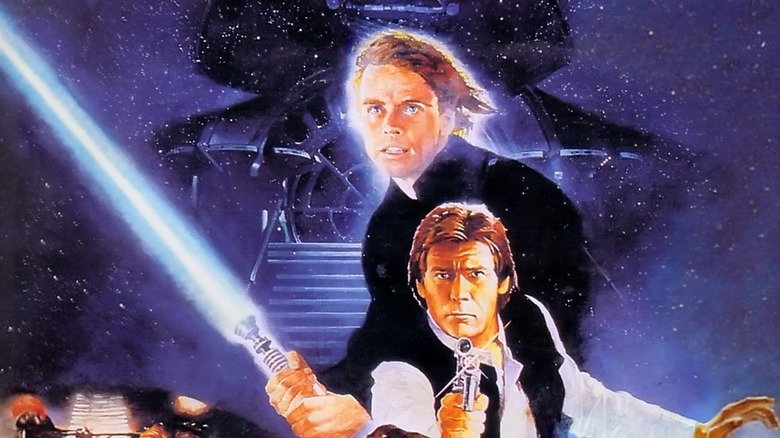
By the early 1980s, "Star Wars" had already become the commercial juggernaut that it remains to this day. After the success of "The Empire Strikes Back," Lucasfilm was eager to keep the ball rolling with another sequel. George Lucas didn't want to direct, Spielberg had been banned from making it (there was a conflict with the DGA), so the net was cast. David Lynch, fresh from an Oscar nomination from "The Elephant Man" turned down the project. When offered the film, Cronenberg's biggest film had been 1981's "Scanners," and he was considered a hot, rising star. He said no. From Variety:
"I'm in my house in Toronto. The phone rings. I'm in my kitchen. The guy says, 'I'm from Lucasfilm. Are you David Cronenberg?' I say, 'yes.' He says, 'George Lucas is wondering if you would be interested in directing the next episode of "Star Wars" which is "The Revenge of the Jedi"' (It was originally called 'Revenge of the Jedi,' but since Jedi warriors do not do revenge they called it 'Return of the Jedi'). And I said, well, I don't usually do other people's material at that point. I only did movies that I wrote. So immediately he hung up on me."
Cronenberg instead went on to make "Videodrome," one of the best sci-fi movies of the decade. He also adapted Stephen King's "The Dead Zone," breaking out of his "other people's material" rule. No doubt a Cronenbergian "Return of the Jedi" might have involved a steelier, colder look, with machines looking less lived in and more imposing. And one can be sure the Ewoks, the adorable species of teddy bear-like aliens that took on an infiltrating Empire battalion, would have been far more disturbing to look at.
Flashdance (1983)
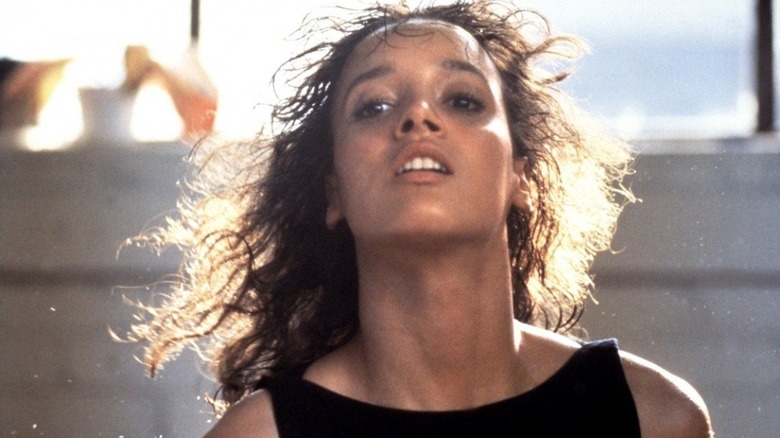
The beginning of Adrian Lyne's 1983 dance film "Flashdance" features a young woman named Alex (Jennifer Beals) welding something at a local steel mill. She works hard all day, but dreams of being a dancer, and performs at a cabaret at night. For many years, "Flashdance" was a slumber party staple among its decade's teens, and remains in the popular consciousness, largely because of the catchy and intense Michael Sembello single on its soundtrack.
The project was offered to Brian de Palma, but he turned it down to make "Scarface." The timeline of events is unclear, and one can't say when Cronenberg was approached to make "Flashdance" in relation to his refusal to make "Return of the Jedi" and his production of "Videodrome," but offered he was. The gig was ultimately given to Lyne, who was coming off the success of his film "Foxes." Lyne brought the appropriate smokiness to the story.
With Cronenberg's frequent focus on the body and bodily degradation, it's possible his "Flashdance" would have featured a lot more footage of Alex taping up her feet, cracking her bones, straining her muscles, pushing her body to the limit. Dancing can be very hard on a human body, and it's easy to picture a Cronenberg film less about the art of the dance, and more about the physical toll it takes. One might also speculate that the film's ending would have been different. Injury over triumph.
Top Gun (1986)
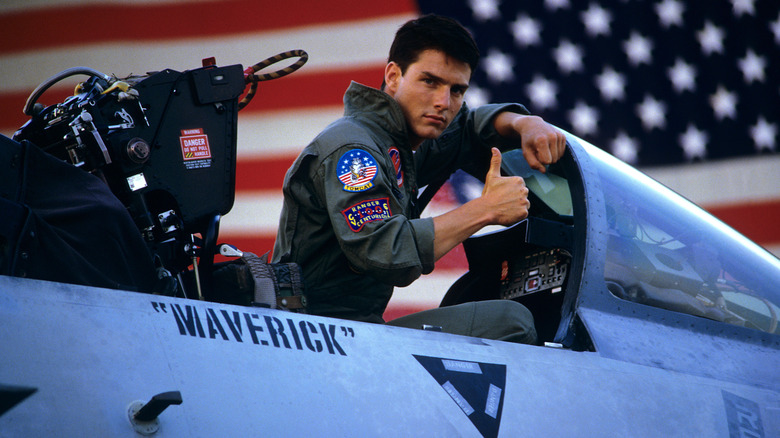
Cronenberg has made several films about cars and driving, including the action film "Fast Company" (1979), the erotic drama "Crash" (1996), and arguably "Cosmopolis" (2012) which takes place largely inside the back of a limousine. The cold, steely exteriors that modern society has incorporated into its everyday life is now, Cronenberg seems to interpret, a new layer of metallic flesh to house our scattered minds. It may not be so massive a stretch, then, to see Cronenberg behind the camera of "Top Gun," a 1986 pro-military film about navy pilots and their egos. Cronenberg simply wasn't interested. From Variety:
"'Top Gun' was about American military stuff. It's true that I like machines, I like cars, I like airplanes, but it just wasn't something I was interested in to direct. Directing takes at least two years of your life. If you watch it, it takes two hours. So that's the difference."
Tony Scott ended up taking the job, making "Top Gun" into a testosterone-soaked action picture with a lot of flying and shirtless volleyball. He must have done something right, as "Top Gun" was an enormous hit. Its sequel, "Top Gun: Maverick," is due in theaters on May 27.
True Detective, Season 2 (2105)
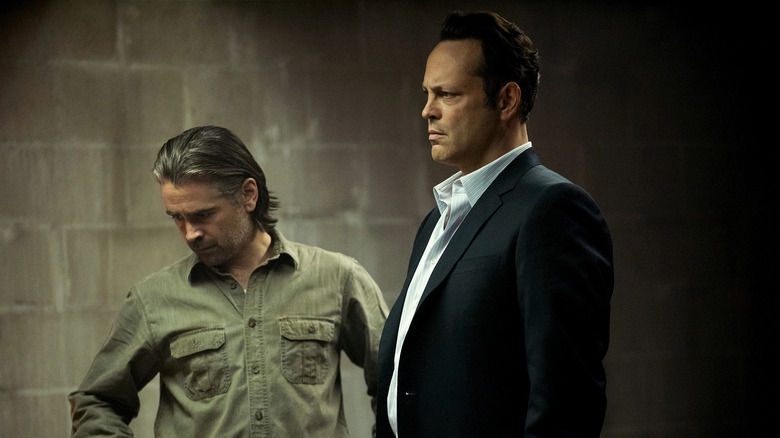
While Cronenberg has directed TV before, cinema was more his wheelhouse. In 1971 and '72, Cronenberg made eight TV movies for Canadian television, and one episode of the CBC documentary anthology series "Program X." In the mid-1980s, he also directed one episode of the excellent horror show "Friday the 13th: The Series." In the mid-2010s, show creator Nic Pizzolatto found a huge hit with the HBO series "True Detective," with each episode of the show's first season directed by Cary Joji Fukunaga ("No Time to Die"). For the expected second season, the direction was to be shared by multiple directors, ultimately landing on filmmakers like Justin Lin and John Crowley.
Both William Friedkin and David Cronenberg were approached, but nothing doing. Cronenberg didn't want to delve back into television. From IndieWire:
"Last year I was approached to direct the first episode of the second season of 'True Detective,' I considered it but I thought that the script was bad, so I didn't do it. In TV, the director is just a traffic cop, but on the other hand it is work and there's a lot of it."
Cronenberg had already made an intense crime drama in the form of "Eastern Promises" back in 2007, so audiences can imagine that same aesthetic and attitude on "True Detective," should their minds tend to wander.
Cronenberg's next feature film, he has announced, will be an adaptation of his own novel "Consumed," a drama about a rare sexually transmitted disease.
Read this next: Horror Roles That Changed Actors Forever
The post The Projects You Didn't Know David Cronenberg Turned Down appeared first on /Film.
0 Commentaires